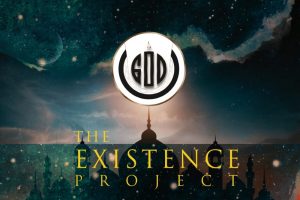
Sabahat Ali, USA
The story goes something like this:
Three college students were engaged in a heated row, each absolutely convinced that he was right.
‘It’s definitely a horse,’ one insisted for the umpteenth time.
‘How can you possibly confuse a horse with a zebra?’ protested the second, still staring at the quintessential black and white stripes running down the leg of the animal.
The third friend was simply fuming.
‘Have you never seen a giraffe before!? This can only be a giraffe!’ The incredulity in all their voices was palpable.
The three friends had all been given different parts of what they were told was the same animal. The first was given a clear picture of only the legs and hooves. The second person was shown only the body, while the third was specifically given the face. Their challenge was to piece together what animal it was.
After a hopeless tussle, all three of them stood at odds with each other.
The tragic irony, of course, was that all of them were wrong.
The picture, it turned out, was of an Okapi, a bizarrely curious zebra-giraffe hybrid which carries the head of a giraffe, the body of a horse, and the legs of a zebra.
Strangely enough, the confusion of the college boys sheds a revealing light on the need for employing all the attributes and characteristics of a thing under discussion. It also demonstrates the futility and dangers of reaching conclusions founded on one-dimensional observation or incomplete presumptions.
Between the fantastical fables of Norse lore and the mythical labyrinths of Ancient Greek, Aztec, Egyptian and Mayan gods, the concept of God has become synonymous with fiction in popular media.
In fact, the rejection of more than one God has been the prerogative of every Prophet of God as well. Though some may argue that the intellectual evolution of humans enabled them to shed the skin of primitive deities, this trend of outgrowing mythology has been heralded and championed by prophets of God beyond any other force in history.
On one hand, these men stood at the forefront of rationally confuting the prevalent belief in various gods and goddesses of their time, and on the other, always sought to revert humanity’s attention to the singular Entity responsible for the creation and sustenance of all the worlds. Every debate concerning the existence and relevance of God is innately doomed to perdition if His attributes are not correctly borne in mind.
The Holy Qur’an presents an entirely unique line of arguments concerning the existence of God. A cursory glance over the tired span of philosophical clashes regarding God demonstrates the largely inconsequential results of discussing God without His attributes. The ignorance or deficient knowledge of Divine attributes has always led to dead ends. This is why, before embarking on any journey to understand God Almighty, one must first define, to a reasonable extent, the attributes of God.
While a vast majority of atheists in the West are born out of their rejection of the trinitarian god described by the modern-day church, this series shall deal with the concept of God as propounded by the Holy Qur’an, which describes God Almighty as a single Being, Who created the Heavens and the Earth and is the ultimate cause which brought about everything.
A Qualifying Dilemma
At this point, one must ask, ‘If I do not believe in God anyway, why should I discuss His attributes?’ The fact is that before accepting or rejecting anything, one must first educate themselves about its reality. One of the central purposes of the Holy Qur’an is to acquaint its reader with the qualities of his Creator. Those who reject God (or some concept of God) do so on account of some characteristics which either their conscience or their rationality cannot accept or comprehend. The Holy Qur’an uniquely paints a picture of God Almighty which appeals to both the human heart and the faculty of rationality. It is the only scripture which rationally defends its case for the existence of God, and His relevance in our lives.
As Hazrat Mirza Bashir Ahmad (ra), in his seminal work, Our God, puts it:
‘O God, how very Holy, Adorable and Perfect You are! Each attribute of Yours is guarded by another of Your attributes. When anyone attacks any one of Your attributes, Your other attributes—like vigilant and dutiful sentries—put such a person to shame. We have seen how a critic tried to create doubt concerning God’s attribute of being Hidden [why can’t we see Him?], but His attributes of being Incorporeal and Infinite came forward at once and did away with the objection.
The Beauty of God lies in His being Hidden from our physical eyes and yet being apparent to us; He is Subtle but remains more evident and perceptible than material things. Unfortunate indeed is he who does not comprehend this subtle truth, for he stands on the brink of disaster.’ [1]
Enter Qur’anic Theism
The Holy Qur’an introduces God Almighty with four fundamental characteristics which encompass all His other qualities. They are the cornerstones of understanding the concept of God that Islam puts forth. Fourteen centuries ago, the Holy Qur’an presented these four foundational attributes as the essence of God’s being in its opening chapter.
The claim that the Holy Qur’an is a book of God literally commences with a clear-cut introduction of its author. Thus, the very first words of the Holy Qur’an are:
بِسۡمِ اللّٰہِ الرَّحۡمٰنِ الرَّحِیۡمِ
اَلۡحَمۡدُ لِلّٰہِ رَبِّ الۡعٰلَمِیۡنَ
الرَّحۡمٰنِ الرَّحِیۡمِ
مٰلِکِ یَوۡمِ الدِّیۡنِ
These verses inform the reader of the Being from Whom the Holy Qur’an has emerged. Thus, the verses read:
‘In the name of Allah, the Gracious, the Merciful. All praise belongs to Allah, Lord of all the worlds. The Gracious, the Merciful. Master of the Day of Judgement.’ [2]
The very first words of the Holy Qur’an introduce Allah (the personal name for God). The word Allah refers to the One and only God Who has no parallel nor equal. He is without beginning nor subject to any end, and is the ultimate force enabling and regulating all of His creation, which depends on Him in every way. [3]
Explaining the unique perfection of God, the Fifth Caliph and Worldwide Head of the Ahmadiyya Muslim Community, His Holiness, Hazrat Mirza Masroor Ahmad (aba) once explained:
‘When we claim that Allah is ‘Perfect,’ it is based on reality because the very definition of perfection is based on two fundamental characteristics.
First of all, for something to be deemed perfect, its beauty and appearance must be utterly immaculate and without any flaw. Secondly, if something or someone claims to be perfect, then they must be beyond compare in their favours, kindness and grace towards others. And so, we find that the magnificence and beauty of everything within the Heavens and the Earth is actually a display of God’s beauty and His favours towards His Creation, and thus, absolute proof of His perfection. When we observe the rewards and blessings that God has given to mankind it naturally leads us to be grateful for His kindness and favours upon us.’ [4]
The very next word used to describe Him is Ar-Rahman, referring to the intrinsic quality of doing something without anyone asking for it to be done. And thus, it had to be, for whatever force brought about the universe had to possess this quality of doing things without anyone else asking it to be done. It also refers to the general-most grace of God, i.e., that He extends all necessary provisions and requirements of existence and development to each one of His creations without any distinction. It is this universal-most grace which fuels the entire universe.
From the moment of the universe’s inception, when, within a millionth of a second, the exact values of the fundamental forces were determined so that hydrogen and subsequently star clusters could be born, to the inconceivably complex cell structure within a fly’s leg, every step of the universe’s evolution and the development of life is an expression of God being Ar-Rahman.
Explaining this, the Promised Messiah and founder of the Ahmadiyya Muslim Community, Hazrat Mirza Ghulam Ahmad (as), writes:
‘His True Being is the support of the whole universe and the refuge of all high and low. It is He who brought everything out of the darkness of obsoleteness and bestowed upon it the robe of existence. There is no other being that exists in its own right, or which is eternal, or who is not the recipient of His grace. The earth and the heavens, mankind and animals, stones and trees, souls and bodies all owe their existence to His grace… There is no pre-condition for being the beneficiary of this grace.’ [5]
Then, He is Ar-Raheem, the One Who developed and imbued the system of cause and effect into His creation, and Who rewards hard work and struggle with progress and advancement. It is through this attribute that a person who strives to acquire material success sees it, and one who seeks to obtain spiritual merit sees it. This second category of grace is not directly proportionate to man’s effort. In fact, the word Ar-Raheem connotes that God grants man many times more than his effort warrants and does so repeatedly.
The next verse goes on to say that all beauties, perfections, excellences, praiseworthy qualities, and powers belong to God alone, Who is the Lord of all the worlds. God Almighty is not only the ultimate cause of all causes and the originator of our universe, but is the single Entity bringing each thing from its rudimentary stage to the next, and so on and so forth.
But this word Rabb, which is translated as Lord, is intrinsically multi-dimensional. Thus, the Promised Messiah (as) explains,
‘The grace of God’s providence (rububiyyat) is extensively far-reaching and universal in scope, and it refers to the nourishing care by which God brings to a state of completion the whole of His creation in all their individual conditions, and the manner in which He supports their development to higher perfection.’ [6]
There is no way to rationally confute the fact that from the very initial wink of the universe, every step has been utterly, mind-bendingly ingenious. From the sub-atomic precision assumed by each of the fundamental forces at their nearly instantaneous birth, to the subsequent formation of stars, solar systems and ultimately, life, the arrangement assumed by the cosmos is so stupendously excellent that the human mind is incapable of grasping its entirety. This step-by-step order of events, the Holy Qur’an argues, was the deliberate fine-tuning of the Lord of all the Worlds.
Then, the Holy Qur’an again emphasizes the twin attributes of the Mercy of God, calling Him the infinitely Gracious and Exceedingly Merciful. Why is this important in every discussion concerning God? Because beyond the argument of cosmology and fine-tuning is the debate revolving around morality – the age-old debate about good and evil, right and wrong, moral and immoral. Hence, God Almighty lays down the principle that in the end, His mercy encompasses all His actions.
Immediately after expressing Himself as a God of Mercy, the Holy Qur’an calls Him ‘Master of the Day of Judgement.’ The miraculous push against the rule of death and destruction that faced every step of our universe and certainly every step of our evolution conveys a plethora of evidence in support of the former three attributes. However, one may very well ask of the suffering and inequities that exist despite such an allegedly merciful God.
This is why, by announcing that there is certainly a day when all those cruelties which this world did not take into account will be addressed, God announces that He will not allow an atom’s weight of good or evil to go to waste. Those who faced any atrocity or injustice will find their reward with their Lord, Whose mercy encompasses all things. While the reader may not agree with the concept of an afterlife or of souls, the purpose of this piece was to paint a simple picture of the fundamental attributes of God Almighty according to the Holy Qur’an, so that whenever He is discussed further in the series, recourse can be had to His fundamental attributes.
There may be some reading this who have rejected a version of God different than the One described by these opening verses of the Holy Qur’an. They stand with the Holy Qur’an in rejecting all such faulty and defective concepts.
To conclude this short interlude on the attributes of God, the following excerpts are reproduced of the Promised Messiah, Hazrat Mirza Ghulam Ahmad (as) of Qadian:
‘It should also be remembered clearly that everything has a benefit. Simply observe the world around us. From the highest forms of vegetation to insects and mice, there is nothing in this world which does not benefit man in some form or another. All of these things, whether earthly or heavenly, are reflections and traces of the attributes of Allah Almighty. Now when even the attributes of God are nothing but good, how beneficent and advantageous is His Being itself? At this instance, it ought to be remembered also that sometimes we suffer injury from various things due to our own error and lack of understanding, and not because there is an inherent harm in the things themselves; our own misjudgement and error is responsible. In the same vein, due to our own ignorance of certain divine attributes, we are afflicted by pain and hardship. For God Almighty Himself is nothing but mercy and compassion. The underlying mystery behind the cause of hardship and grief in this world is that humans suffer affliction by their own hands, as a result of their misjudgement and deficient knowledge. Therefore, it is through the skylight of God’s attributes alone that we find Allah the Exalted to be a most Merciful and Compassionate Being—a Being whose benefit cannot be fathomed. [7]
On another occasion, he wrote:
‘…with the exception of Allah Almighty, there is no one else that exists or lives independently without an initial cause, nor can there be any other prime cause—except for God of course—which brought about the creation of this universe with all its wise and balanced order. Hence, this discloses to us that besides God Almighty, there is no other being that can change or alter the creations of this universe or which can be described as having been the source or cause of the life and existence of all things.’ [8]
With that being said, the next piece shall begin to explore the first argument in the case for the existence of God.
About the Author: Sabahat Ali is a graduate from the Canadian Ahmadiyya Institute of Languages and Theology. He currently serves as an Imam of the Ahmadiyya Muslim Community USA, and is a regular contributor for the Review of Religions.
[1] Hazrat Mirza Bashir Ahmad M.A, Our God, pg. 14, English Translation
[2] The Holy Qur’an 1:1-4
[3] The Holy Qur’an, Chapter 112
[4] Mirza Masroor Ahmad, The Four Fundamental Attributes of God, Address to guests at Annual Convention Germany, delivered on June 29th 2013
[5] Mirza Ghulam Ahmad, English Translation of Barāhīn-e-Ahmadiyya Vol. III, pg. 92,
[6] Mirza Ghulam Ahmad, English Translation of Malfuzat, Vol. 1, pg. 202
[7] Mirza Ghulam Ahmad, English Translation of Malfuzat, Vol. 1, pg. 105-106
[8] Mirza Ghulam Ahmad, English Translation of Malfuzat, Vol. 1, pg. 111




Add Comment